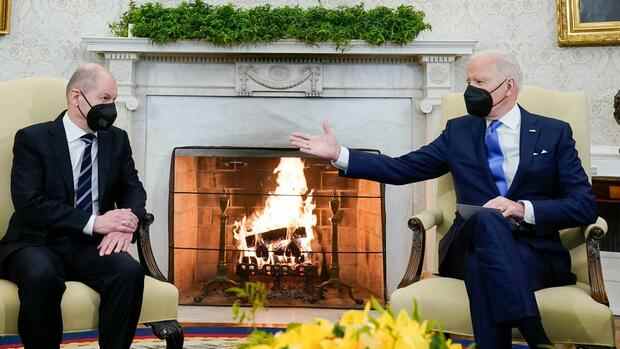The Federal Republic could easily hide under the protective military and economic mantles of NATO and the EU.
(Photo: AP)
Dusseldorf The “Zeitenwende” already has a good chance of being chosen and honored as word of the year 2022. Beyond the German-speaking world, the term is now used to describe what Russia’s war of aggression against Ukraine means: a reversal of the principles of international relations of the past thirty years.
Paradoxically, this foreign policy turnaround coincides almost exactly with a domestic one: the end of the Merkel era after 16 years in power. Chancellor Olaf Scholz actually wanted to continue Merkel’s style of government with his style of government – level-headed and diplomatic, some would say reserved and hesitant.
The fact that he is still sticking to this management style shows that he has not yet understood the greatest task of his tenure. He and his government must finally define what role Germany wants to play geopolitically in the future.
You have to decide how the country is perceived by opponents and allies. Because as a war party, which Germany has long represented, at least indirectly, sending the right signals to opponents and allies is vital for survival.
Top jobs of the day
Find the best jobs now and
be notified by email.
Forgot to think strategically
The problem with this is that Germany has forgotten how to think strategically over the past few decades. The Federal Republic could easily hide under the protective military and economic mantles of NATO and the EU.
After the experiences of the Second World War, politicians did not want to appear to be pursuing any national geostrategic interests. That worked well for a very long time.
>>> Also read here: Why does the traffic light not clearly commit to NATO’s two percent target?
But it is inherent in a turning point that it turns existing conditions upside down. In the case of the Russian war of aggression, this means the return of geopolitics to Europe and to Berlin. For Moscow, thinking in spheres of influence has never gone away – with its invasion of a peaceful neighboring country, it is now imposing its perspective on the rest of Europe.
The federal government must quickly decide how it would like to be perceived in this new interaction. It’s all about the external appearance. And so far it has been devastating. The government delayed important decisions such as stopping Nord Stream 2.
On other issues, such as the export of heavy weapons, the foreign and economic ministries are publicly pushing ahead. Chancellor Scholz, whose party is also arguing internally about the right course, is holding back – and waiting.
That sends a fatal signal to strategic allies: they don’t need to call Berlin looking for support, but rather ask around elsewhere. Getting rid of this reputation will be a huge challenge for Germany in the period after the turning point.
More: No visit to Ukraine, no heavy weapons: Olaf Scholz is coming under more and more pressure.
